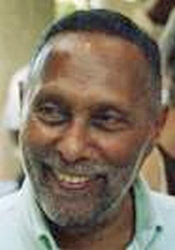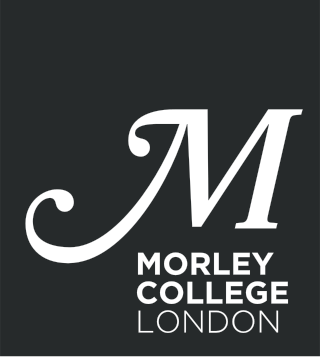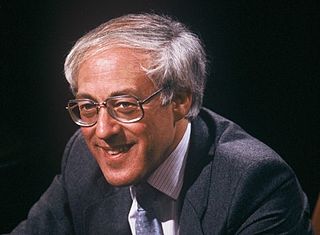Related Research Articles
Week Ending was a satirical radio current affairs sketch show broadcast on BBC Radio 4 between 1970 and 1998. It was devised by writer-producers Simon Brett and David Hatch and was originally hosted by Nationwide presenter Michael Barratt.

Stuart Henry McPhail Hall was a Jamaican-born British Marxist sociologist, cultural theorist, and political activist. Hall, along with Richard Hoggart and Raymond Williams, was one of the founding figures of the school of thought that is now known as British Cultural Studies or the Birmingham School of Cultural Studies.

Westward Television was the first ITV franchise-holder for the South West of England. It held the franchise from 29 April 1961 until 31 December 1981. After a difficult start, Westward Television provided a popular, distinctive and highly regarded service to its region, until public boardroom squabbles led to its franchise not being renewed by the IBA. Westward launched the career of many broadcasters who became well known nationally, won numerous awards for its programming, and heavily influenced its successor, TSW.

Magyar Televízió or MTV is a nationwide public television broadcasting organization in Hungary. Headquartered in Budapest, it is the oldest television broadcaster in Hungary and today airs five channels: M1 HD, M2 HD, M3, M4 Sport and M5.

Question Time is a topical debate programme, typically broadcast on BBC One at 10:45 pm on Thursdays. It is usually repeated on BBC Two and on BBC Parliament, later in the week. If there is a Leaders special, it would be broadcast simultaneously on BBC News. Question Time is also available on BBC iPlayer. Fiona Bruce currently chairs the show having succeeded David Dimbleby as presenter in January 2019.
Reception theory is a version of reader response literary theory that emphasizes each particular reader's reception or interpretation in making meaning from a literary text. Reception theory is generally referred to as audience reception in the analysis of communications models. In literary studies, reception theory originated from the work of Hans-Robert Jauss in the late 1960s, and the most influential work was produced during the 1970s and early 1980s in Germany and the US, with some notable work done in other Western European countries. A form of reception theory has also been applied to the study of historiography.
The Centre for Contemporary Cultural Studies (CCCS) was a research centre at the University of Birmingham, England. It was founded in 1964 by Stuart Hall and Richard Hoggart, its first director. From 1964 to 2002, it played a critical role in developing the field of cultural studies.
Decoding, in semiotics, is the process of interpreting a message sent by an addresser (sender) to an addressee (receiver). The complementary process – creating a message for transmission to an addressee – is called encoding.
Audience theory offers explanations of how people encounter media, how they use it, and how it affects them. Although the concept of an audience predates media, most audience theory is concerned with people’s relationship to various forms of media. There is no single theory of audience, but a range of explanatory frameworks. These can be rooted in the social sciences, rhetoric, literary theory, cultural studies, communication studies and network science depending on the phenomena they seek to explain. Audience theories can also be pitched at different levels of analysis ranging from individuals to large masses or networks of people.
Television studies is an academic discipline that deals with critical approaches to television. Usually, it is distinguished from mass communication research, which tends to approach the topic from a social sciences perspective. Defining the field is problematic; some institutions and syllabuses do not distinguish it from media studies or classify it as a subfield of popular culture studies.

Nationwide was a BBC current affairs television programme which ran from 9 September 1969 until 5 August 1983. Originally broadcast on BBC 1 from Tuesday to Thursday, and then each weekday from 1972, it followed the early evening news, and included the regional opt-out news programmes.

Morley College is a specialist adult education and further education college in London, England. The college has three main campuses, one in Waterloo on the South Bank, and two in West London namely in North Kensington and in Chelsea, the latter two joining following a merger with Kensington and Chelsea College in 2020. There are also smaller centres part of the college elsewhere. Morley College is also a registered charity under English law. It was originally founded in the 1880s and has a student population of 11,000 adult students. It offers courses in a wide variety of fields including art and design, fashion, languages, drama, dance, music, health and humanities.

Anthropology of media is an area of study within social or cultural anthropology that emphasizes ethnographic studies as a means of understanding producers, audiences, and other cultural and social aspects of mass media.
Quality television is a term used by television scholars, television critics, and broadcasting advocacy groups to describe a genre or style of television programming that they argue is of higher quality due to its subject matter, style, or content. For several decades after World War II, television that was deemed to be "quality television" was mostly associated with government-funded public television networks; however, with the development of cable TV network specialty channels in the 1980s and 1990s, US cable channels such as HBO made a number of television shows during the turn of the century that some television critics argued were "quality television", such as Angels in America, Sex and the City, The Sopranos, The Wire and Six Feet Under.
The Encoding/Decoding model of communication was first developed by cultural studies scholar Stuart Hall in 1973. Stuart Hall pronounced the study as 'Encoding and Decoding in the Television Discourse.' Hall's essay offers a theoretical approach of how media messages are produced, disseminated, and interpreted. Hall proposed that audience members can play an active role in decoding messages as they rely on their own social contexts and capability of changing messages through collective action.

Anthony David Smith, CBE was a British broadcaster, author and academic, who was president of Magdalen College, Oxford, from 1988 to 2005.
Also known as reception analysis, audience reception theory has come to be widely used as a way of characterizing the wave of audience research which occurred within communications and cultural studies during the 1980s and 1990s. On the whole, this work has adopted a "culturalist" perspective, has tended to use qualitative methods of research and has tended to be concerned, one way or another, with exploring the active choices, uses and interpretations made of media materials, by their consumers. Can also be known as reception theory, in which producers encode with a desired response, then the audience decode.
Robert Arthur Wellings was a British television presenter who worked most notably on BBC current affairs television programme Nationwide.
Audience studies is a discipline and field of study, a sub-set of media studies, that investigates the processes of media audiences using different methodologies to test and develop theories of audiences' processes of reception. Much of the field borrows concepts from literary theory and research approaches from cultural studies. The primary media of study are film and television and the field intersects in many ways, including its methods used and its focus on everyday media audiences, with fan studies. Audience studies emerged as a field in the early 20th century as a form of market research, but slowly, with the rise of film studies, became popular in an academic context.
Charlotte Brunsdon is a professor of film and television studies at the University of Warwick and researcher. She was one of the principal researchers of the Nationwide Project.
References
Footnotes
- ↑ Moores 1993 , p. 19
- ↑ Morley 1980 , pp. 142–3
- ↑ Kim 2004 , p. 103
- ↑ Kim 2004 , p. 88
Bibliography
- Brunsdon, Charlotte (1978) Everyday Television – Nationwide. London: BFI. ISBN 0-85170-080-2
- Morley, David (1980). The Nationwide audience : structure and decoding. London: British Film Institute. ISBN 0-85170-097-7. OCLC 13671690.
- Morley, David & Charlotte Brunsdon (1999) The Nationwide Television Studies London: Routledge. ISBN 0-415-14879-0 [reprint, combining the original two books]
- Moores, Shaun (1993). Interpreting Audiences: The Ethnography of Media Consumption. London: Sage. ISBN 0-8039-8447-2.
- Kim, Sujeong (2004). "Rereading David Morley's The 'Nationwide' Audience". Cultural Studies. 18 (1): 84–108. doi:10.1080/0950238042000181629. ISSN 0950-2386. S2CID 144510856.